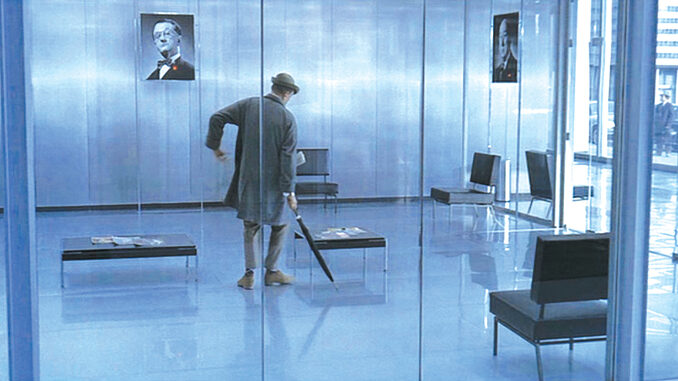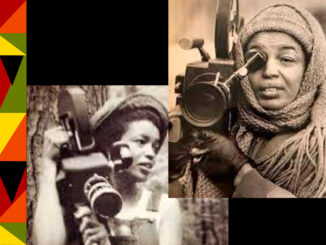
by Marshall Harvey, ACE
Comedy, as they say, is all in the timing. Therefore, a comic’s best friend has got to be the film editor. But how does one become a good comedy editor? First, I believe, a person must have a natural instinct for what’s funny. The rest can be picked up over the years through osmosis, watching and studying the great film comics.
By age 15, I was a big movie buff and aspiring comedian. Late one night while channel-surfing (in 1965 there were only 12 stations!), I happened upon the middle of something intriguing. It seemed foreign, with little or no dialogue, and was filled with inventive visual gags that rivaled the best of Chaplin and Keaton. I stayed glued to the TV set, waiting for the local announcer to tell me that I was watching Jacques Tati’s Mon Oncle. Since there were no video shops in those days, and scarcely any film books, I could only learn more about Tati by scanning the weekly TV Guide hoping for his name to pop up. Months later, when a local station was showing Mr. Hulot’s Holiday, I gathered my high school filmmaking bud- dies to watch and discover Tati’s brand of comic genius. Two years later, I saw an ad in a magazine for Tati’s newest film, Playtime. I couldn’t wait for the day that it would be released in America. But that day wouldn’t arrive for another five years!
I was a film student at Cal Arts when I read that Tati would be presenting his first feature, Jour Du Fete, at the second annual Filmex and screening Playtime for the first time in Los Angeles at the Directors Guild. When I mentioned this to one of my teachers, the late, great Jules Engel, he said, “I know Tati. Do you want to go and meet him?” Needless to say, it was a very special evening that I’ll always treasure.
Playtime was to be Tati’s master- piece––years in the making and way over budget. It was one of those big movies that could never live up to its high expectations.
Tati had invested his life’s savings into the project. He had built an elaborate set––a modern city filled with skyscrapers––that the French press called “Tativille.” He shot his comedy in 65mm, one of the last features to be photographed in that format.
When released, the movie received tepid reviews and dismal box office numbers (which explains the long delay find- ing American distribution). There were many reasons for this.
The world had moved on. With Vietnam raging and the rise of the counter-culture, Tati’s measured pacing and plotless human observations seemed too quaint and old-fashioned. His character, Mr. Hulot, only played a supporting role. And much of its screen time was devoted to subtle visual gags played out in very wide master shots.
(This is a film that must be seen on the big screen to be truly appreciated; the American Cinematheque in LA has screened it in 70mm.)
But Playtime has grown in stature over the years. It is filled with ingenious moments. Tati has a field day creating gags within his world of steel and glass. Characters only glimpse the Eiffel Tower and other Paris landmarks when they’re reflected in the glass doors of the modern buildings. The art direction and the use of clever sound effects are phenomenal.
Within its two-hour running time is a 30-minute set piece that is truly Tati’s finest and perhaps the greatest sustained sequence of visual comedy ever commit- ted to celluloid: the grand opening of a very posh Parisian nightclub, the Royal Garden. It begins with the nervous architect arguing with the staff over last- minute complications (the kitchen service window is too small for the chef’s specialty dish to fit through).
As the city’s elite begin to arrive, carpenters scurry about trying to finish their work. More things soon go astray. The air conditioning fails, electrical circuits overload and, with a little help from Mr. Hulot, the fancy eatery slowly self- destructs. Eventually, a few hardy patrons manage to salvage what’s left of the restaurant and transform it into a charming bistro filled with wine, women and song––a night of camaraderie and fun that the cold, modern nightclub could never provide.
Tati’s satire of modern architecture and how it affects our lives is perhaps even more relevant today than it was 40 years ago. Almost every shot has one or more visual gags. His comic timing is always perfect, and the pacing (by editor Gerard Pollican, assisted by Tati’s own daughter, Sophie) allows the audience to be completely immersed in the movie’s modern world. Playtime is a true master- piece worth watching and studying over and over.





